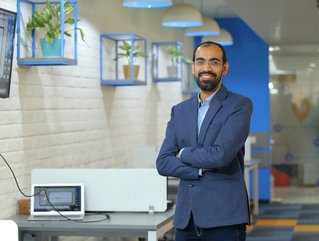Zenatix expands cloud services into the Middle East

Zenatix has entered the Middle East as it aims to help small and mid-sized buildings drive energy efficiency.
Starting operations in Dubai, Zenatix, part of the US$11bn Hero Group, offers organisations 'robust' cloud-based energy and asset management solutions.
Its solutions are deployed at 2,500+ sites with 50k-plus connected assets generating over 200mn data points daily. The benefits to customers include up to 20% cost efficiency through energy savings and manpower savings, up to 25% improvement in comfort and food safety compliance and 30% reduction in asset breakdowns.
Rahul Bhalla, CEO & Co-founder, Zenatix, said while the large buildings market is served by traditional Building Management Systems, automation in small and mid-sized buildings is a global gap.
"Zenatix’ IoT powered solution is affordable, wireless, scalable and enables easy deployment by partners and system integrators," he said. "Customers get a centralised visibility into their distributed operations and are able to save 10-20% energy while reducing breakdowns through Zenatix’ AI powered predictive maintenance features. ”
“Zenatix has made significant investments in developing OpenThread based wireless mesh technology for both sensing and actuation, which allows plug and play deployments in existing infrastructures and provides ROI in less than 18 months. We are extremely happy to launch this solution in the UAE and the Middle East where there is increased focus on energy management and sustainability, driven both by the government and corporations.”
The Middle East Building Automation System Market is projected to grow at a CAGR of 5.4% during 2020-2026 and grow on the back of the myriad construction activities which will see greater focus on energy efficiency. This would require adoption of sustainable measures by diverse stakeholders to enable a future that is conducive to the environment.
Small and mid-sized infrastructures with multiple sites lack automation and thus face challenges with energy inefficiency and equipment maintenance. With Zenatix’s IoT powered automated solution, commercial buildings across sectors can have automated controls and real-time visibility into their operations, helping them reduce energy consumption, alert them on any anomalies, improve operational compliance and facilitate remote asset management.
While the UAE is a fossil fuel powerhouse, it is busy developing solar power and promoting sustainability under initiatives such as the Dubai Clean Energy Strategy 2050, and COP28 is scheduled to be held in Dubai in 2023.
Energy industry set for '360 degree transformation' fuelled by renewables and technology investment
At last week's Middle East Energy show, it was announced renewable and clean energy will account for 34% of total power sector investments across the MENA region in the next five years, and over AED55bn of solar power projects will enter operation in the region by 2026, and the sector's capacity will grow by 83GW by 2035.
Key technology advances in the utilities sector include security for distribution grids, data insights from smart meters and improved training and certification with online tools.
Pressure to limit O&M costs and meet increased regulation will see utilities adopt DevOps and containerisation, using the cloud to build highly flexible platform-agnostic IT solutions including energy efficiency portals and seamless customer self-service applications that transcend services and geographies.
“What is being projected is an industry set for a complete 360 degree transformation where techies, scientists and business developers work together to advance the sectors, keep pace with ever rising customer expectations, maintain tight cost controls, meet new compliance standards and ring fence their cyber and operations assets,” said Gareth Rapley, Group Director, Industrial, at Informa Markets, organiser of Middle East Energy.
And while the challenges may seem immense, they bring with them huge opportunities for those determined to deliver a hyper efficient, profitable and secure industry.”
Globally, energy efficiency represents around 40% of the GHG reduction potential that can be realised at a cost of less than €60mn per metric tonne of carbon dioxide equivalent, according to McKinsey.






